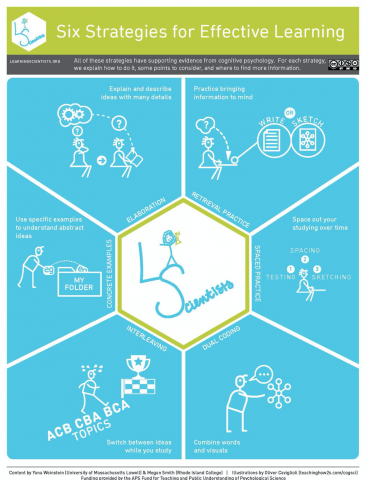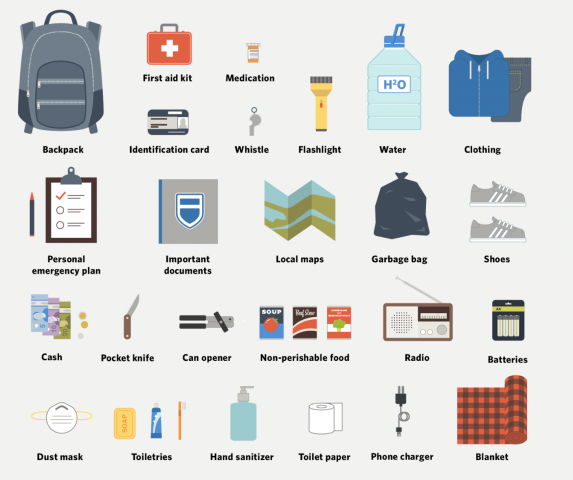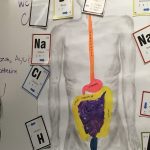
Researchers have learned a great deal about how students learn on their own and in the classroom, and much of this research can be applied to educational settings. One of our primary goals is to make this research on learning more accessible and create free evidence-based resources for teachers and students. To meet that goal, over the past few months we have been working on creating resources in different formats based on 6 learning strategies whose effectiveness is backed by decades of cognitive research:
- Spacing (1)
- Retrieval Practice (2)
- Elaboration (3)
- Interleaving (4)
- Concrete Examples (5)
- Dual Coding (6)
All 6 of these strategies have evidence supporting their effectiveness, but some do have more evidence than others. For example, there is a lot of evidence supporting retrieval practice and spacing, whereas elaboration has more limitations. These certainly aren’t the only effective learning strategies, either! We focused on these 6 because a recent report (7) found that few teacher-training textbooks cover these principles. Students are therefore missing out on mastering techniques they could use on their own to learn effectively. With our resources, we’re trying to bring information about these particular learning strategies to teachers and students in easy-to-use formats.
Science 8: Grading Rubric – Learning to study using Science
HOW TO STUDY LIKE A SCIENTIST?
Name: ______________Group Members: __________________Assigned Study Strategy:___________________Total: ________/16
This project will assess your knowledge of science based learning & study skills
Part 1) Review your Group’s How to Study Handout. Your Group has been assigned one of the six topics. Working with your group use the study strategy and work through the Chapter 12 test. Focus on how you will explain to the class how to use this study strategy. Select the test questions that you will use to teach the class how to use your strategy.
Part 2) Choose a way to demonstrate your group’s understanding of the best way to use your groups’ study strategy. For example, you may make a video of your group working through questions or you may show the class how your group works through the questions.
Please use the following grading rubric to help guide your group while completing your assignment:
| CRITERIA |
4
EXCEEDING |
3
MEETING |
2
DEVELOPING |
1
BEGINNING |
| Time on task: all members of the group were involved and on task |
Group involvement |
Excused absence |
|
Not on time |
|
Knowledge:
Clear and concise understanding of how the study strategy works |
All aspects of the strategy were explained. Specific examples were used to show the strategy being used. |
|
|
|
| Thought and creativity: Your group’s presentations was engaging and helped students learn how to use the strategy |
Work is in-depth, reflective and thoughtful. A creative approach is used. |
|
|
|
| Neatness and Organization |
Care and attention was taken. I can tell you put effort and care into your presentation. |
|
|
Lacks neatness/ poorly organized |





